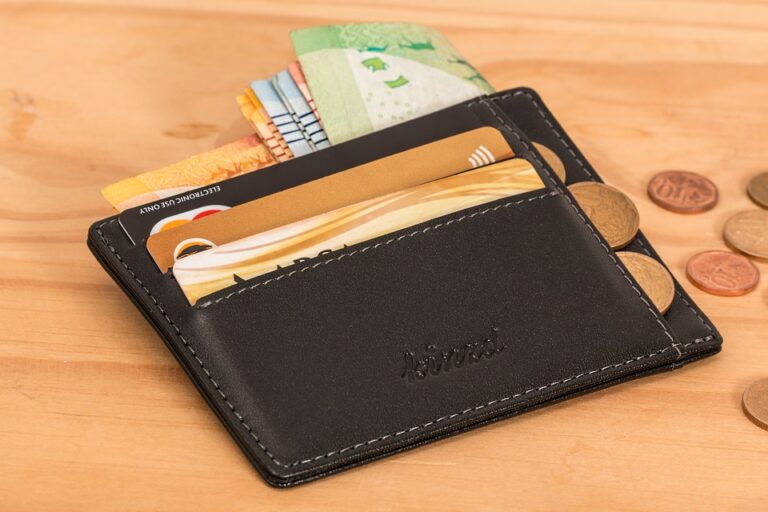Last updated Feb. 7, 2025 by Charles Zemub
In today’s financial environment, maintaining a pristine credit score can be challenging. Life’s unexpected events, from medical emergencies to sudden job loss, can significantly affect our financial standing. As a result, many people find themselves with a less than ideal credit score, making it challenging to secure loans from traditional financial institutions. However, there are options available for those needing bad credit loans—where conventional banks may say no, specialized lenders may be willing to provide financial assistance. In this article, we’ll explore various avenues to obtain a bad credit loan, the process involved, and critical considerations to bear in mind.
Understanding Bad Credit Loans
Before exploring where to find bad credit loans, it’s crucial to understand what they are. Bad credit loans are designed specifically for individuals with low credit scores. Traditional financial institutions like banks and credit unions typically require good to excellent credit scores to grant loans, as they see this as a measure of reliability and creditworthiness. However, numerous online lenders, credit institutions, and other financial entities cater particularly to people with bad credit, focusing on different metrics when deciding whether to approve a loan.
Types of Bad Credit Loans
There are several types of loans available for individuals with bad credit:
-
Personal Loans for Bad Credit: These unsecured loans can be used for various purposes such as consolidating debt, paying for medical expenses, or funding a large purchase.
-
Secured Loans: These loans require collateral, like a car or home, to secure the loan amount. Since the loan is backed by an asset, lenders might offer lower interest rates despite a poor credit score.
-
Payday Loans: Short-term, high-interest loans are designed to be repaid on the borrower’s next payday. They are typically easy to qualify for but come with significant risks due to their high fees and short repayment periods.
-
Title Loans: Similar to secured loans, these require an asset to serve as collateral—usually, the borrower’s vehicle title. Like payday loans, they often have high interest rates.
- Credit-Builder Loans: These function more as a means to rebuild credit rather than providing immediate cash. With this arrangement, the borrowed funds are held in a bank account until the loan is paid off, at which point the borrower can access the funds.
Where to Obtain a Bad Credit Loan
1. Online Lenders
One of the easiest and most accessible avenues for securing a bad credit loan is through online lenders. Companies like Avant, MoneyMutual, and OppLoans specialize in loans for those with poor credit. The advantages of using online lenders include:
- Ease of Application: Online applications are straightforward and user-friendly, often providing pre-approval in minutes.
- Flexible Terms: Many online providers offer a range of loan amounts and repayment terms, offering more adaptable solutions than traditional banks.
- Fast Funding: Some online lenders can deposit the loan amount into your account as quickly as the next business day.
2. Credit Unions
Unlike traditional banks, credit unions are member-owned and often more willing to work with individuals with damaged credit. They typically offer lower interest rates and fees than payday lenders or title loan companies. Membership in a credit union, however, is often required.
3. Peer-to-Peer Lending Platforms
Platforms like LendingClub or Prosper connect borrowers directly with individual investors willing to lend money at agreed-upon rates. These platforms evaluate borrowers based on various factors, making them potentially more forgivable of past credit issues.
4. Family or Friends
While not always an advisable route due to the potential for straining relationships, borrowing from family or friends can be an option. Ensure clear terms and a repayment plan to avoid misunderstandings.
5. Local Community-Based Programs
Various nonprofit or community organizations offer financial assistance programs. While not common, these programs can provide loans or grants to people in need without the constraints of credit scores.
Key Considerations When Opting for a Bad Credit Loan
-
Interest Rates and Fees: Bad credit loans often come with high-interest rates. It’s essential to compare different lenders to find the best rate.
-
Loan Terms: Be wary of short repayment terms that might lead to missed payments and additional fees. Opt for a plan you can realistically adhere to.
-
Total Repayment Amount: Consider how much you will repay over the duration of the loan, including interest and fees. Sometimes, the loan amount might double over the repayment term due to high rates.
-
Potential for Scams: Some predatory lenders exploit borrowers with poor credit by charging exorbitant fees or enforcing unfair terms. It’s crucial to research any lender you’re considering carefully.
- Effect on Credit Score: Timely repayment of the loan can help improve your credit score, while late payments will further damage it. Ensure your lender reports payments to the credit bureaus.
How to Improve Your Chances of Approval
- Check Your Credit Report: Review your credit reports from the three major bureaus to ensure there are no errors. Disputing inaccuracies can help improve your score.
- Provide Accurate Information: Ensure that all personal and financial information provided during the loan application is accurate and honest.
- Consider Secured Loans: Offering collateral can increase your chances of approval.
- Build a Strong Narrative: Some lenders consider personal circumstances, so explaining your financial situation may help persuade them.
Conclusion
Acquiring a loan with a bad credit history is undeniably challenging but not impossible. By exploring different lending avenues and understanding the nature of your financial commitments, you can find a loan that best suits your needs. Always ensure to practice diligence before proceeding with any loan agreement to avoid further financial challenges.
✓ Short Answer
Individuals with bad credit can obtain loans from online lenders, credit unions, or peer-to-peer lending platforms. Consider secured loans or seek help from family or friends. Always compare terms and conditions, focusing on interest rates and potential risks, to ensure the loan fits your financial situation. Community programs may also offer support, but be cautious of potential scams and always check the lender’s credibility. Improving your credit through careful financial management can expand your borrowing options in the future.
FAQs
Q: Will applying for a bad credit loan affect my credit score?
A: Yes, submitting loan applications results in hard inquiries, which can slightly decrease your credit score. However, some lenders offer pre-qualification that doesn’t affect your credit.
Q: How quickly can I get approved for a bad credit loan?
A: Depending on the lender, approval for a bad credit loan can be instantaneous or take a few days. Online lenders, in particular, tend to provide quick approval and funding.
Q: What is the typical range of loan amounts available for bad credit loans?
A: Bad credit loans can range from as low as $500 to $10,000 or more, depending on the lender and collateral backing.
Q: Can I use a guarantor for a bad credit loan?
A: Yes, some lenders allow or require a guarantor with a better credit score to enhance the chances of loan approval and potentially secure better terms.
Q: What steps can I take to improve my credit score for future loans?
A: Paying bills on time, reducing outstanding debt, disputing errors on your credit report, and avoiding new hard inquiries can help improve your credit score over time.
Q: Are there specific lenders for bad credit auto loans?
A: Yes, many lenders specialize in bad credit auto loans, including dealerships and credit unions, making it easier to finance a vehicle purchase despite credit challenges.
By conducting thorough research and understanding various lending options, individuals with bad credit can find ways to obtain necessary financial support while simultaneously taking steps to improve their overall credit health.



